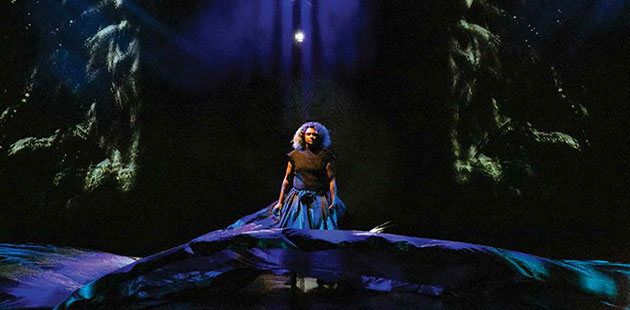 Australians increasingly recognise the vital role of arts and creativity in almost every aspect of our lives, from education to mental health to strengthening local economies. New research from the Australia Council shows growing numbers of Australians agree arts and creativity build social cohesion and support health, education and the future economy – critical areas as our nation recovers from the impact of COVID-19.
Australians increasingly recognise the vital role of arts and creativity in almost every aspect of our lives, from education to mental health to strengthening local economies. New research from the Australia Council shows growing numbers of Australians agree arts and creativity build social cohesion and support health, education and the future economy – critical areas as our nation recovers from the impact of COVID-19.
The research shows Australia is a creative nation: nearly every Australian – 98% of us – engage with arts and culture. An increasing majority of Australians acknowledge the positive impacts of arts and creativity on our lives and our communities (84% up from 75% in 2016).
Creating Our Future: Results of the National Arts Participation Survey is the fourth report in a landmark series spanning over a decade that examines Australians’ attitudes towards and engagement with arts and culture. Conducted immediately prior to the COVID-19 pandemic, the survey results also provide important information as the nation works toward recovery.
Minister for Communications, Cyber Safety and the Arts, the Hon Paul Fletcher MP welcomed the report and said that arts and creativity make a profound contribution to the lives of all Australians.
“The arts contribute a myriad of positive benefits to our society, including direct economic benefits to the tourism and education sectors, and less tangible, yet significant benefits for our mental health and wellbeing – all areas that will be critical as our nation recovers from the COVID-19 crisis and looks to the future,” said Minister Fletcher.
Executive Director Advocacy and Development, Dr Wendy Were said the report underscores the enormous social, cultural and economic value of the arts to all Australians. “Australians have told us, in increasing numbers, just how much the arts enrich, support and expand their lives.” she said.
“With our current focus on mental health, social connection and consumer confidence, the sustaining nature of our connections with and through creativity – the very participation this study measures – is more important than”
“This research shows just what is at stake, and highlights the crucial role of arts and creativity as we seek to bring life back into our cities, regions, and economy.” said Dr Were.
The research also shows more Australians support public funding for the arts (63%, up 12 percentage points) and have clear priorities for investment, including ensuring access to the arts and creative experiences for young people to support learning and development.
It shows digital engagement with the arts was growing, even prior to COVID-19, along with live attendance, highlighting the potential for digital technologies to break down barriers to access. Many of the survey results highlight the critical role of arts and creativity for Australia’s future success, through contributions to child development, education, local businesses and skills for the future.
“One in two Australians now believe the arts build the creative skills that will be necessary for the future workforce. Almost three quarters see it as a crucial part of education. While we face an uncertain future, we can be sure that arts and creativity have a significant role in helping us all navigate rapid change, and in building a happy, healthy and thriving society,” said Dr Were.
The survey is the fourth report in a landmark research series conducted by the Australia Council examining Australians’ participation in and engagement with arts and culture, following editions in 2016, 2013 and 2009. Almost 9,000 Australians were surveyed for Creating Our Future. The survey was conducted online in November and December 2019.
For more information and to download a copy of Creating Our Future: Results of the National Arts Participation Survey, visit: www.australiacouncil.gov.au for details.
Image: Sarah Bolt in NORPA’s 2017 production, Djurra – photo by Kate Holmes
